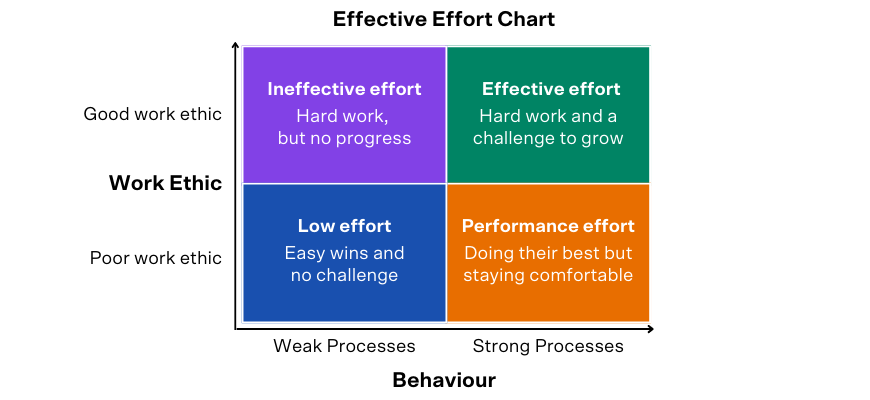Welcome to Matrix Education
To ensure we are showing you the most relevant content, please select your location below.
Select a year to see courses
Learn online or on-campus during the term or school holidays
Learn online or on-campus during the term or school holidays
Learn online or on-campus during the term or school holidays
Learn online or on-campus during the term or school holidays
Learn online or on-campus during the term or school holidays
Learn online or on-campus during the term or school holidays
Learn online or on-campus during the term or school holidays
Get HSC Trial exam ready in just a week
Get HSC exam ready in just a week
Select a year to see available courses
Science guides to help you get ahead
Science guides to help you get ahead
Giving feedback to your child can be daunting or challenging. In this article, we give you 7 parenting tips to ensure you give feedback effectively and constructively.

Join 75,893 students who already have a head start.
"*" indicates required fields
Related courses

Join 8000+ students each term who already have a head start on their school academic journey.
Do you worry about how to give feedback to your child? In this article, we’re going to give you some simple and effective tips to make sure that you encourage the right habits and discourage bad ones so your child can ace High School!
Supporting your child’s learning at home can be challenging. It’s important that when you’re trying to support your child’s learning, you do it in a positive way that fosters their interest while overcoming bad habits or common mistakes.
However, it can be easy to create tension in the home or hinder your child’s learning by taking the wrong approach or saying the wrong thing. Being a parent is challenging enough without throwing in learning support, right?
We often get asked, “How should I give feedback to my child?”
This is because parents often struggle to find the right balance between the proverbial carrot and stick.
What we’re going to do now, is walk you through a series of handy tips to ensure that when you give feedback to your child, it’s productive and helpful.
The tips we’re going to look at are:
It’s very easy to talk at your children, especially about things we feel we know better than them, rather than talk to them. This is counterproductive.
Instead, you want to first listen to your children and ask them questions about where they’re struggling. Most of the time young students struggle with their marks it’s because they’re unsure of:
When you discuss a weak set of results with your child, ask them if they:
Listening to your child here, will give you the information you need to move forward and help them. Use this information to help them correct their errors, learn the right processes, or reach out to their teacher or educator for assistance.
When discussing schoolwork and reports with your kids, always focus on the process, too, and not just the marks.

You don’t want to focus on praising your child’s high marks or being overly critical of their poor marks. Sure, reward success and criticise failure. But don’t focus on these things.
While it may seem intuitive, you’re not rewarding things that are productive. Instead, you are setting the wrong standard and inhibiting learning and growth.
Focusing on the process your child is using to solve problems will support them to develop the tools to continue to learn. Focusing on grades will compel them to find short-cuts instead of solutions.
When you focus on the process, you are encouraging your child to focus on working hard and problem-solving.
These are the skills they need in the long-run.
So what should you do?
The aim, here, is to be constructive. You want to build a better foundation for your child to work and solve problems. Getting emotional or angry, while it may satisfy you, isn’t solving the issue.
Matrix+ courses and Matrix online courses support children in their learning and use a learning platform that allows parents to see how their child is performing and what they’re struggling with. Learn more.
Get ahead with Matrix+ online
Learn at your own pace with expert teachers and proven resources. 100% of students improved their marks in one term.
It’s really easy to get frustrated with your kids, especially if they perform poorly consistently or don’t listen. Trying to remain objective and stay calm is hard at the best of times, especially if you’re a stressed parent.
However, when you try to give feedback to your child about their work or their marks, being emotional will make things worse, not better. Why? Well, as soon as you bring emotion into it, you’re making the focus of the discussion them and your feelings and not their study or the things they’re doing wrong.
When you start getting upset with them, all of a sudden the focus has moved away from schoolwork and onto your feelings. This won’t help them improve.
So, how do you keep emotion out of it when giving your child feedback?
A good approach is to focus on giving some praise along with negative feedback. This makes things feel and seem more productive and less of an attack, the key point here is to provide the supportive base they need to improve and work hard.
When providing constructive criticism about a task they’ve completed, you want to present positive encouragement with the criticism.
Why?
Well, when you are trying to encourage somebody to make changes and develop, you want to highlight what they are doing well along with what they’re not.
So what’s the best way to do this? A compliment sandwich!
While not as tasty as an actual sandwich, a compliment sandwich makes it easier for children to swallow criticism, digest it, and use it constructively.
So, how do you give a compliment sandwich? Easy.
By finishing on a rewarding positive, they’re going to be more focused on fixing that negative!
When you dish up those compliment sandwiches, remember to praise the effort involved and not natural ability. Study after study has shown that when we praise somebody’s ability and talent, the effort that they put in drops proportionately.
When we praise effort, we are rewarding the sort of behaviour that helps children overcome adverse situations. While a child may have an inherent aptitude for a subject or a sport, praising that doesn’t give them the impetus to continue to develop.
Instead, you want your child to develop resilience and determination to overcome obstacles and barriers. By celebrating their hard work, and not what they’ve done effortlessly, you’re encouraging that behaviour to continue.
It’s important, though, that you don’t just praise kids for having a go. You want to praise effective efforts! James Anderson, an educator and speaker, advocates for fostering growth mindsets by praising effective efforts.
What does this mean?
Anderson presents the following sort of matrix to illustrate how to evaluate the type of effort on display:

What you, as a parent, want to encourage is your child pushing themselves with the right kind of process and use of critical thinking. So, before you give feedback, think about what they’ve done, and how they’ve done it. This way you can encourage and support their effective efforts!
When offering feedback, it is important to be specific. Don’t generalise! You’re trying to help them solve a problem, not pick apart all of their traits that frustrate you or offer vague compliments.
Don’t just say, “Good work!” or “You’ve done a bad job.” That’s not helpful!
Instead, what you want to pinpoint the specific things that they have done well or not done adequately. Make sure that you mean what you say, people, and especially children, are very adept at spotting meaningless platitudes.
When presenting specific feedback, don’t just what, but also explain why!
Don’t say, “You did well on your maths test. Well done!”
Do say, “You’ve done well on the logarithm section of your maths test because you studied the process consistently. Well done!”
Don’t say, “That was a poor effort on your essay. You need to work harder.”
Do say, “You did poorly on your essay because you didn’t spend enough time analysing your text. Plan your time better, so you can study more effectively. Let me know how I can help!”
Notice how the second example for each hones right in on the points that should be praised or critiqued and explains why!
As you can see from the final example, it’s always very effective to offer your assistance in changing the behaviour!
Feedback isn’t constructive unless you suggest how to improve. And people can’t improve unless they get support. This is where your involvement, as their parent, is so important.
Yes, parents are time poor and stressed. They’re working and cleaning and cooking, taking on a teaching role is something most parents are reluctant to do. “My child has a teacher and tutor, it’s not my job to teach,” is something parents say a lot. Unfortunately, this is the wrong approach.
Even though you might feel unskilled at helping your child put together a science report or solve a quadratic equation, this doesn’t mean you should not be involved. Quite the opposite, in fact.
As their parent, you are perfectly positioned to provide really useful support!
How? You need to ask them what you can do to help.
Most children are nervous about asking for help. They often equate asking for help, with failure. It makes them feel dependent at a period in their life when they feel they need to be more independent.
When you ask if they need help, don’t just ask, “Do you need help?” Ask specifically what they may need help with. For example:
By being specific, you are compelling your child to reflect on what they need help with and feel like you are in it together.
By making them feel supported, you are encouraging them to improve!
But, you don’t want to go in blind. You need to stay in the loop with their educators. How?
Make sure that you don’t go in blind. Teachers, especially Matrix+ and Matrix teachers, provide regular feedback to students that explain how to improve their work.
Take the time to read feedback, and use the online marking platform to ask questions about how your child can improve. Scheduling a call with your child’s school teacher or academic head is a good way of getting a better bead on how you can support your child.
Written by Matrix English Team
The Matrix English Team are tutors and teachers with a passion for English and a dedication to seeing Matrix Students achieving their academic goals.© Matrix Education and www.matrix.edu.au, 2025. Unauthorised use and/or duplication of this material without express and written permission from this site’s author and/or owner is strictly prohibited. Excerpts and links may be used, provided that full and clear credit is given to Matrix Education and www.matrix.edu.au with appropriate and specific direction to the original content.